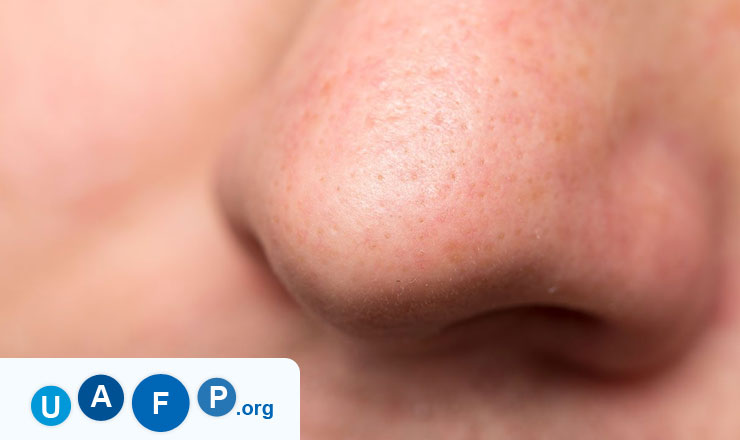Nasal Polyps
Nasal polyps are known to be benign growths appearing at the lining tissues of the nose. This condition is usually triggered by recurring or chronic sinus infections, cystic fibrosis, hay fever, and asthma. Polyps are totally capable of growing so large that it could block the nasal passages causing chronic congestion.
When the nasal congestion seems to not go away even after having enough allergy medications and over-the-counter drugs, it is considered to be nasal polyps. Nasal polyps are not cancerous, but can create a lot of problems.

Causes of Nasal Polyps
Nasal polyps are observed mainly on the tissue that is inflamed inside the nose. The mucosa is a wet layer that helps in protecting the nose and sinuses from foreign particles and humidifying the air in the process. The infection might cause irritation turning the mucosa red and swollen which can also result in the formation of fluid. If the irritation is prolonged, it can trigger the development of a polyp. They are round growths that are known to block the nasal pathways.
Some people may develop this issue even without having any nasal problem in the past. But, in most cases there are some elements that act as triggers. The triggers are:
- Asthma
- Cystic fibrosis
- Recurring or chronic sinus infections
- Hay fever or allergic rhinitis
- Churg-Strauss syndrome
- Being sensitive to non-steroidal anti-inflammatory drugs (NSAIDs) such as aspirin or ibuprofen
Some people also have a heredity tendency of developing nasal polyps. This can be because of the way genes may cause the inflammation.
Symptoms of Nasal Polyps
Nasal Polyps are painless and soft growths occurring inside the nasal pathways. As we lack nerve sensation in the area where the polyps occur usually, we may not realise its presence until later. Polyps are capable of blocking the nasal passages which can cause chronic congestion. Some of the commonly observed symptoms are:
- Runny nose
- Reduced sense of smell
- Nasal congestion
- Nasal stuffiness
- Postnasal drip
- The nose's sensation stops
- Snoring
- Sleep apnea
- A pressure being constantly present on the face and forehead
- Breathing through the mouth
Headaches or pain might be seen as well along with sinus infection and polyp.
Treatment for Nasal Polyps
Nasal Polyps can be treated the following ways:
Medications
Medications that are used for reducing inflammation can be used for reducing the symptoms and size of the polyp. For reducing the stuffy nose condition, nasal steroids can be used. Stopping them can bring back the symptoms again real quick. Some examples would include mometasone, budesonide, fluticasone, etc.
An injectable or oral steroid can be used when nasal sprays do not work efficiently. They are not a long term solution as they can bring about several side effects as well.
In case the symptoms do not disappear, the polyps can be removed surgically. The type of surgery chosen will depend on the polyp's size. Using saline washes and nasal sprays after the surgery is conducted will help in preventing the reoccurrence of polyps.




